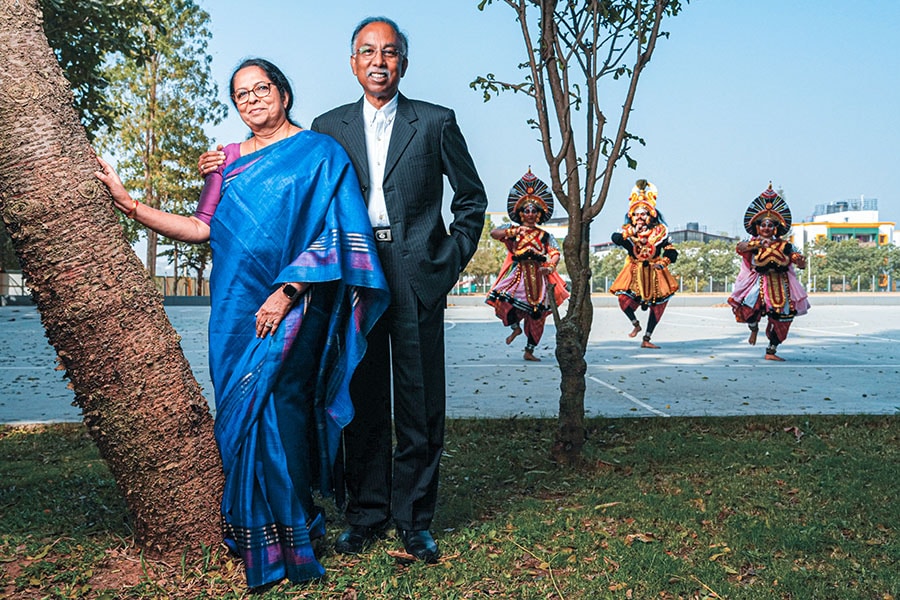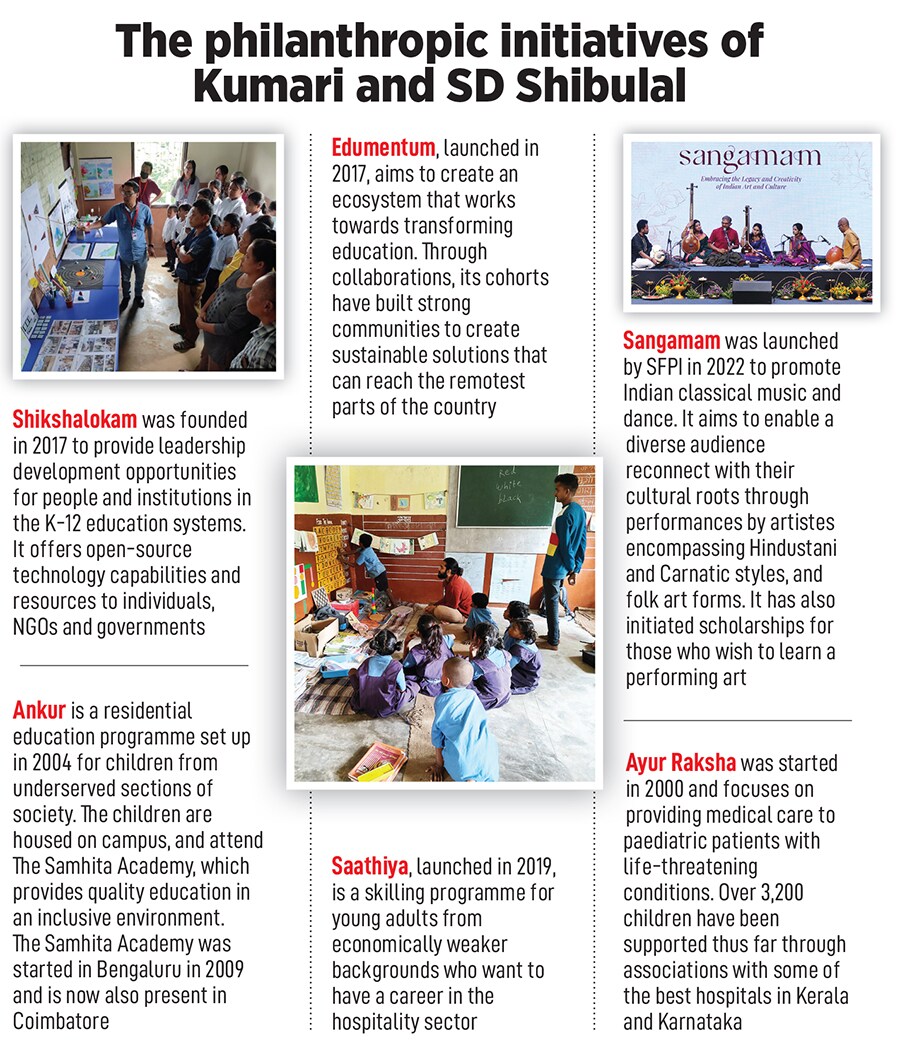
Kumari and SD Shibulal: Nurturing the transformative power of education
With a firm belief in the transformative power of education, Kumari and SD Shibulal started their philanthropic journey 25 years ago, growing the reach of their programmes and nurturing their success
 (From left) Kumari Shibulal and SD Shibulal set up the Shibulal Family Philanthropic Initiatives (SFPI) in 1998
Image: Selvaprakash Lakshmanan for Forbes India
(From left) Kumari Shibulal and SD Shibulal set up the Shibulal Family Philanthropic Initiatives (SFPI) in 1998
Image: Selvaprakash Lakshmanan for Forbes India
Both of us come from middle-class families. I come from a lower middle-class family, and when I was growing up, education was not that important for parents. They wouldn’t encourage it much because livelihoods got in the way,” recalls Kumari Shibulal, who was born to farmer parents in Ramamangalam, a small village in Kerala. “I remember when I was going to school, during harvest time, half the children would be absent from classes.” Her own parents, however, although uneducated, were very progressive. “They figured out that only through education we can make any improvement in our lives or in future generations. So, they forced us to go to school and study. That is the reason we are here now, talking to you.”
Having experienced the paradigmatic shifts that education brought to their own lives, both SD Shibulal, co-founder and former CEO of Infosys, and his wife Kumari have been ardent believers in its transformative powers. It is, therefore, not entirely surprising that they decided to start and sustain their philanthropic journey in the field of education, expanding its scope and scale over the past 25 years.
The couple set up the Shibulal Family Philanthropic Initiatives (SFPI) in 1998, by sponsoring the education of two children from Shibulal’s school, TD High School, in his hometown, Alappuzha in Kerala, and, over the years, have established several programmes that support the education of thousands of underprivileged children from multiple states, taking them through school and higher education. In more recent years, they have established a skilling programme for youngsters who want to have a career in the hospitality sector, as well as a programme to encourage and support classical music, folk art and dance forms.
Starting with its first educational programme in 1999, the SFPI today supports multiple programmes that provides scholarships (Vidyadhan) and residential schooling facilities (Ankur) for children from underprivileged backgrounds, inclusive schools (The Samhita Academy), educational leadership development platforms (Shikshalokam), educational ecosystem building platforms (Edumentum), skilling programmes for the youth (Saathiya), and sponsoring classical Indian and folk art music and dance forms (Sangamam) through concerts and scholarships (see box).
The EdelGive Hurun India Philanthropy list 2023 says Shibulal donated ₹35 crore towards philanthropy and ranked 29th on the list. According to Forbes, he oversees his family office, Innovations Investment Management, and continues to hold a small stake in Infosys. He co-founded business incubator Axilor Ventures together with former Infosys colleague Senapathy Gopalakrishnan in 2014, and chairs The Tamara, a boutique resort chain, which his daughter Shruti founded and runs. Kumari is the founder and chairperson at SFPI, and the founder-patron of the Sarojini Damodaran Foundation (set up in 1999) and The Advaith Foundation (set up in 2004).










